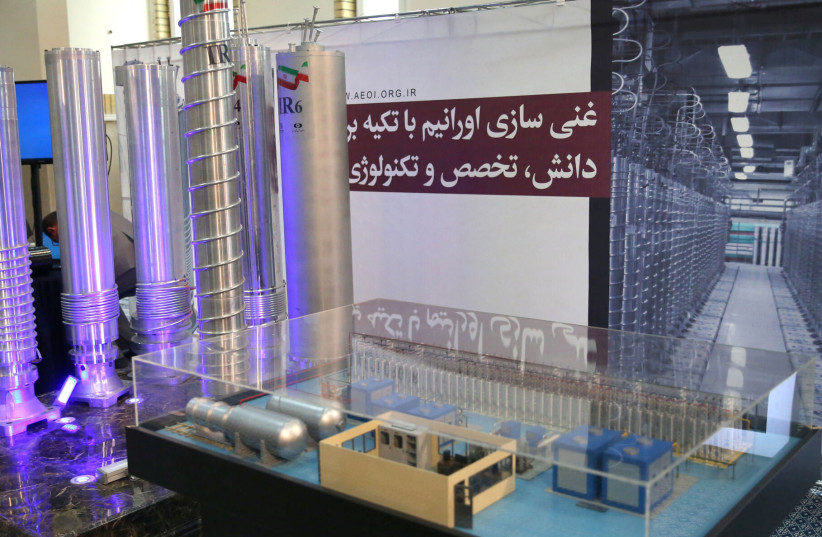Israel FM Cohen calls for US-Saudi nuclear defense agreement in normalization deal
The US should give Saudi Arabia a guarantee to defend it against Iranian nuclear aggression as part of a normalization deal with Israel, Foreign Minister Eli Cohen wrote in The Wall Street Journal overnight Tuesday.
Cohen’s article comes as the US works to bring about diplomatic relations between Jerusalem and Riyadh. Saudi Arabia has asked for numerous sweeteners from the US, including a civilian nuclear program, which has raised concerns in Israel.
The foreign minister compared the nuclear threat of Iran to other countries in the region to North Korea’s nuclear threat to South Korea and beyond.
“South Korea, despite living under the shadow of a nuclear-armed neighbor and having the means to develop its own nuclear weapons, has abstained from nuclear-weapons development,” Cohen wrote. “The US’s defense commitment acts as South Korea’s deterrent against Northern aggression. A comparable American defense pledge could reassure Middle Eastern nations, primarily Saudi Arabia and the Gulf states.”
Iran’s potential nuclear arsenal
If Iran builds a nuclear weapon, “it would almost certainly ignite a regional nuclear arms race,” with Saudi Arabia, Gulf States, Egypt and Turkey considering doing the same and “potentially plunging the entire Middle East into conflict,” Cohen wrote.
 Iranian centrifuges are seen on display during a meeting between Iran’s Supreme Leader Ayatollah Ali Khamenei and nuclear scientists and personnel of the Atomic Energy Organization of Iran (AEOI), in Tehran, Iran June 11, 2023. (credit: Office of the Iranian Supreme Leader/WANA (West Asia News Agency) via REUTERS)
Iranian centrifuges are seen on display during a meeting between Iran’s Supreme Leader Ayatollah Ali Khamenei and nuclear scientists and personnel of the Atomic Energy Organization of Iran (AEOI), in Tehran, Iran June 11, 2023. (credit: Office of the Iranian Supreme Leader/WANA (West Asia News Agency) via REUTERS)The Israeli National Security Council has been examining the potential impact of the various possibilities on Israel’s security, with a positive approach to advance its existing under-the-radar ties with Saudi Arabia and make them public.
US-Saudi negotiations
Israeli officials are not currently part of the negotiations taking place between the Americans and the Saudis, and as such have had little to say openly about the kingdom’s requests.
“It’s all plus-plus, no minuses,” a senior diplomatic source said. “It’s in our national security interest to have relations with Saudi Arabia.”
While neither Saudi Arabia nor Iran has an acute need for alternative energy, since both are major oil producers, Riyadh clearly looks at Tehran’s civilian uranium enrichment program, much of which was permitted in the 2015 nuclear agreement with world powers, and wants something similar, the source explained.
“Israel wouldn’t want proliferation anywhere, but the most important thing is to stop Iran from getting a nuclear weapon,” he added.
Asked in an interview with KAN last week whether Israel would oppose Saudi civilian uranium enrichment, National Security Adviser Tzachi Hanegbi would not say, but said that it was “unreasonable” to think the US would allow a military nuclear program.
“Israel will not concede anything that will erode its security,” he said.
As the US-Saudi defense agreement is meant to come in conjunction with normalization with Israel, it is unlikely to go further than the Israeli security establishment deems safe. In addition, an agreement that Israel would view as a security problem would likely have difficulty getting the necessary 67 votes in the Senate needed to be approved.





Comments are closed.